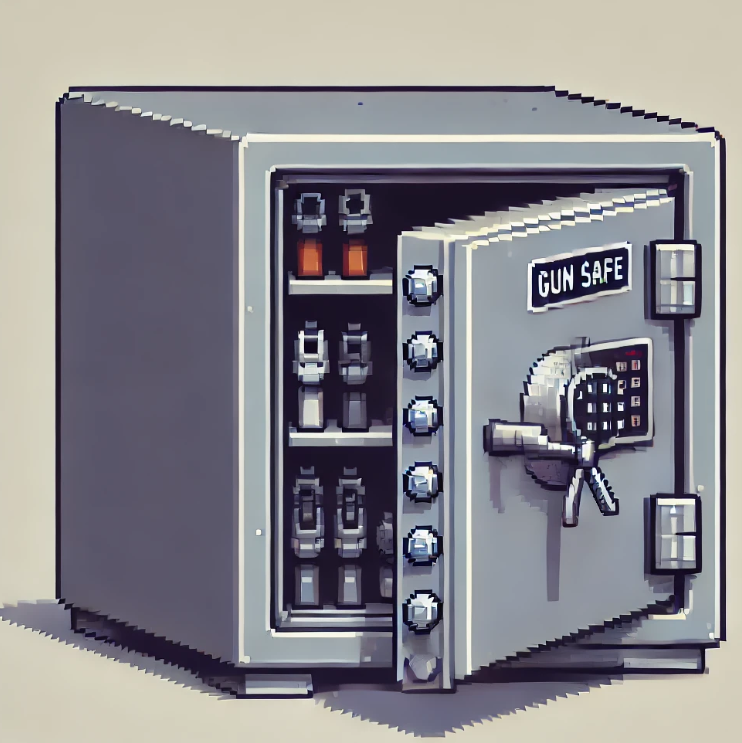
Suicide Prevention through Means Restriction
Suicide is a significant public health crisis, claiming the lives of nearly 800,000 people worldwide every year. In many cases, the availability of means or methods plays a pivotal role in determining whether someone’s suicidal thoughts translate into action. By restricting access to these means—be it firearms, pesticides, or medications—public health strategies have proven effective in reducing both suicide attempts and deaths. In this blog, we’ll explore how limiting access to suicide methods has worked in various countries, the challenges these measures face, and why they remain essential to saving lives.
Understanding the Connection Between Means and Suicide
When someone is experiencing suicidal ideation, those moments of intense crisis are often brief, sometimes lasting only a few minutes. In these critical moments, the availability of lethal means can be the difference between life and death. For instance, access to a firearm in a household significantly increases the risk of a successful suicide attempt. Studies have shown that a person is three times more likely to die by suicide if there is a firearm in the home. Similarly, having certain toxic pesticides or easily accessible medications around can lead to impulsive actions with tragic outcomes.
This is where the concept of means restriction comes into play. The idea is simple but powerful: If we make lethal methods harder to access, people will have fewer opportunities to act on impulsive, life-ending decisions. Not only does this delay the potential act, but it also provides time for the individual to seek help or for someone else to intervene.
Global Success Stories: Restricting Access to Means
Efforts to restrict access to lethal means have already saved lives in several countries. Some of the most compelling examples come from pesticide restrictions in low- and middle-income countries (LMICs) and gun control policies in higher-income countries like the United States.
Pesticide Regulations in Sri Lanka and China
In LMICs, pesticides are a common method of suicide, particularly in rural areas where they are often stored in homes. In the early 1990s, Sri Lanka saw an alarming rise in suicide rates, with many deaths caused by pesticide ingestion. Recognizing this, the country implemented a series of bans on the most hazardous pesticides. Over a 20-year period, these bans led to nearly 93,000 fewer suicides than predicted. The reduction was so significant that it helped halve the country’s overall suicide rate.
China has also implemented national bans on highly toxic pesticides, leading to dramatic decreases in pesticide-related suicides. After banning certain organophosphate pesticides in 2008 and paraquat in 2016, China saw a staggering 60% decrease in pesticide-related suicide deaths. Importantly, these restrictions were most effective among women, young adults, and urban populations, highlighting the potential for targeted interventions.
Firearm Regulations in the United States and Israel
In countries like the United States, firearms are a leading method of suicide, accounting for over half of all gun-related deaths. Research has consistently shown that access to firearms in the home increases the risk of suicide by any method, particularly firearms. While comprehensive gun control remains a polarizing issue, some states have implemented laws to reduce access to firearms in households, particularly among minors.
For example, laws preventing child access to firearms and raising the minimum age to purchase firearms have been associated with reductions in youth suicide rates. These targeted interventions demonstrate that even in the face of political and cultural resistance, small steps can make a big difference.
A striking international example comes from Israel, where a change in military policy required soldiers to leave their firearms at their bases during weekend leave. This policy shift led to a 40% reduction in suicides among young soldiers, with no increase in suicides by other means.
Challenges and Substitution Effects
While restricting access to lethal means has proven effective, it is not without challenges. One major concern is method substitution—the possibility that individuals will simply switch to another available method if one is restricted. For instance, when pesticides were banned in certain countries, there were increases in suicide by hanging or other methods. However, research suggests that substitution does not fully offset the benefits of means restriction. In fact, overall suicide rates still tend to decline, even when people turn to alternative methods.
Another challenge lies in public and commercial opposition. Gun control laws in the United States, for example, face strong resistance from both gun rights advocates and the firearm industry. Similarly, in LMICs, bans on pesticides can be met with pushback from agricultural sectors concerned about crop yields. Overcoming these barriers requires strategic communication, collaboration with local stakeholders, and the use of alternative, less harmful products.
A Broader Approach: Restricting Cognitive Access
In addition to physically restricting lethal means, there’s growing recognition of the need to address cognitive access to suicide methods. This involves reducing public awareness of certain methods through responsible media reporting and public messaging. Research has shown that suicides can spike after highly publicized cases, especially when details about the method are shared widely.
For example, following the widely publicized suicide of actor Robin Williams, suicide rates in the United States and Australia rose, particularly involving the method he used. This highlights the importance of responsible media coverage that avoids sensationalizing suicides and instead focuses on help-seeking behavior and prevention resources.
Practical Takeaways for Public Health Practitioners
For those working in public health, the lessons are clear. Incorporating means restriction into national and local suicide prevention strategies can save lives. Whether advocating for legislation to ban highly hazardous pesticides, supporting firearm safety education, or encouraging the media to report responsibly on suicide cases, public health practitioners play a vital role in these efforts.
Furthermore, means restriction is most effective when combined with broader suicide prevention strategies, such as increasing access to mental health services, promoting crisis intervention, and fostering supportive communities. The more comprehensive the approach, the more lives we can save.
Join the Conversation
What role do you think means restriction should play in suicide prevention? Have you seen successful examples of restricting access to lethal means in your community or country? Share your thoughts in the comments or on social media!
Empower Your Network – Subscribe and Share!
Unlock key insights with ‘This Week in Public Health.’ Subscribe for free and share to drive change as part of a dedicated community. If you liked this blog, please share it! Your referrals help This Week in Public Health reach new readers.


